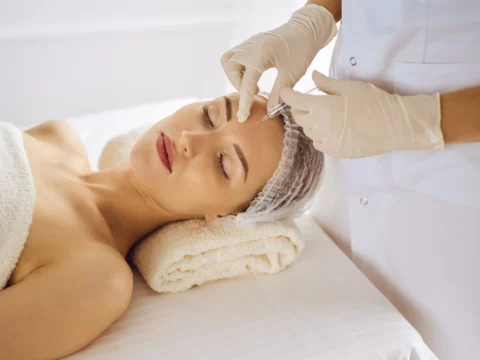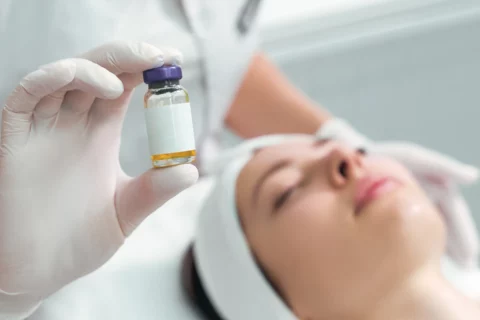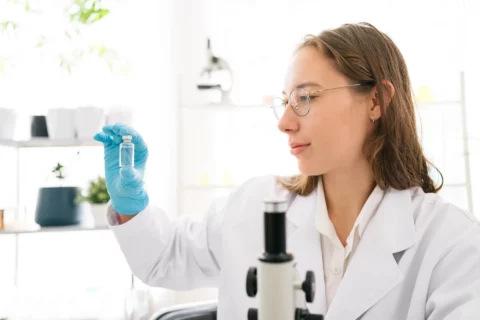Future of Beauty: What’s Next for Exosome Serums in Skincare Innovation?
Exosome serums are taking the beauty world by storm, and at Face Med Store, led by the expert guidance of Dr. Hardik Soni, we’re here to provide you with an unbiased deep dive into this new skincare craze.
These advanced formulas offer a cellular approach to rejuvenating your skin, promising to revolutionize anti-aging routines. Understand what sets them apart, learn about their unique benefits, and discover how to choose the right one for your skin needs.
Whether you’re a skincare enthusiast or new to this beauty science, we’re here to guide you through everything you need to know about exosome serums.
What is Exosome Serum?
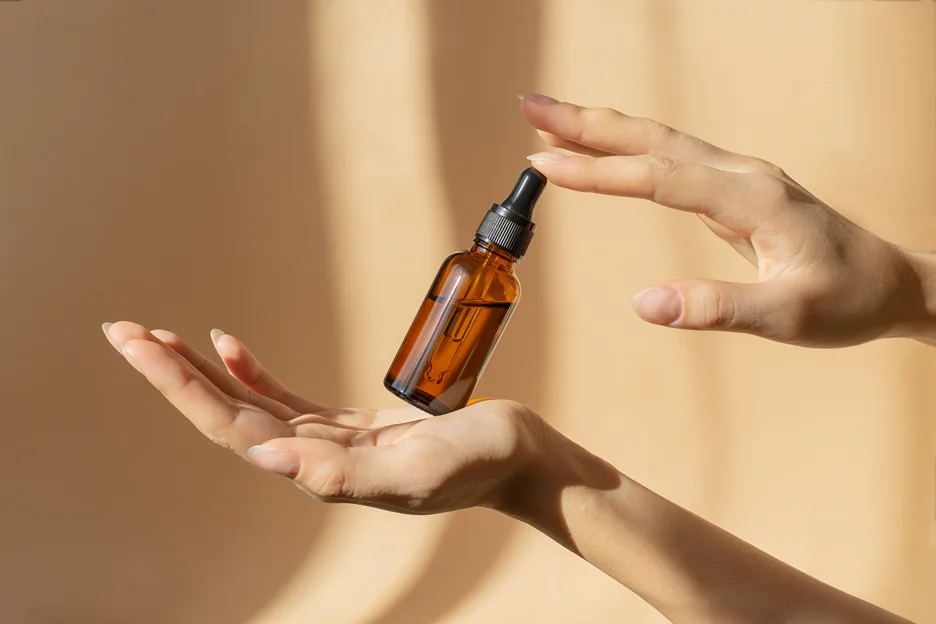
Exosome serums represent an exciting new frontier in skincare. As Dr. Hardik Soni of Face Med Store explains, exosomes are tiny vesicles released by cells that act as messengers, transmitting information between cells. Exosomes contain proteins, RNA, and other molecules that mirror the content of the cell of origin.
When applied topically to the skin in a serum, exosomes can transmit their beneficial cargo to skin cells, promoting cellular communication, renewal, and rejuvenation. The exosomes in these serums are typically derived from stem cells from plants or humans.
This origin enables the exosomes to stimulate collagen production, cellular turnover, tissue repair, and other regenerative processes when applied to the skin.
Unlike many other anti-aging skincare ingredients that work on the surface alone, exosome serums leverage the innate messaging capabilities of exosomes to impart benefits at the cellular level. This emerging scientific understanding of exosomes has unlocked a powerful new approach to fighting aging with topical serums.
How Does Exosome Serum Benefit the Skin?
With their ability to facilitate cellular communication, exosome serums offer a wide array of skin benefits when applied topically. The potential regenerative effects of exosomes make them a compelling anti-aging ingredient.
When the exosomes in the serum fuse and enter skin cells, they transmit proteins, peptides, and RNA that kickstart regenerative activities. This helps counteract visible signs of aging like wrinkles, fine lines, dullness, and sagging skin. Specific benefits of exosome serum include:
- Increased collagen production for firmer, more youthful skin texture and elasticity
- Enhanced skin cell renewal and turnover rate for smoother, glowing skin
- Lightening of age spots and reduction in hyperpigmentation for more even skin tone
- Improved hydration and moisture retention reducing dryness
- Repair of UV and environmental damage, restoring radiance
The antioxidant and anti-inflammatory properties of exosomes also help protect the skin against free radical damage. Their ability to stimulate blood vessel growth improves circulation in the skin as well. All these targeted effects make exosome serums a multi-tasking anti-aging powerhouse.
What Differentiates Exosome Serum from Other Facial Serums?
Unlike many traditional anti-aging serums that work on the skin’s surface, exosome serums leverage cellular messenger technology to impart benefits at the cellular level. This gives exosome serums an edge over other serums in terms of regenerative capabilities.
Most facial serums contain ingredients like vitamins, peptides, hyaluronic acid, and antioxidants that offer protection and hydration to nourish the skin. Although effective, these serums don’t actively stimulate cellular renewal.
Exosome serums are set apart by their ability to transmit regenerative signals deep within skin cells, activating renewal processes. This gives them an anti-aging advantage over serums that work superficially.
The unique composition of exosomes filled with proteins, peptides, and RNA contributes to this differentiating factor. No other skincare ingredient can claim to facilitate this intercellular communication to the extent that exosomes do.
Additionally, exosome serums often incorporate other anti-aging ingredients like retinol, Vitamin C, and stem cell extracts to augment the exosome benefits. This optimized formulation allows exosome serums to outperform many other anti-aging facial serums.
How is Exosome Serum for the Face Applied?
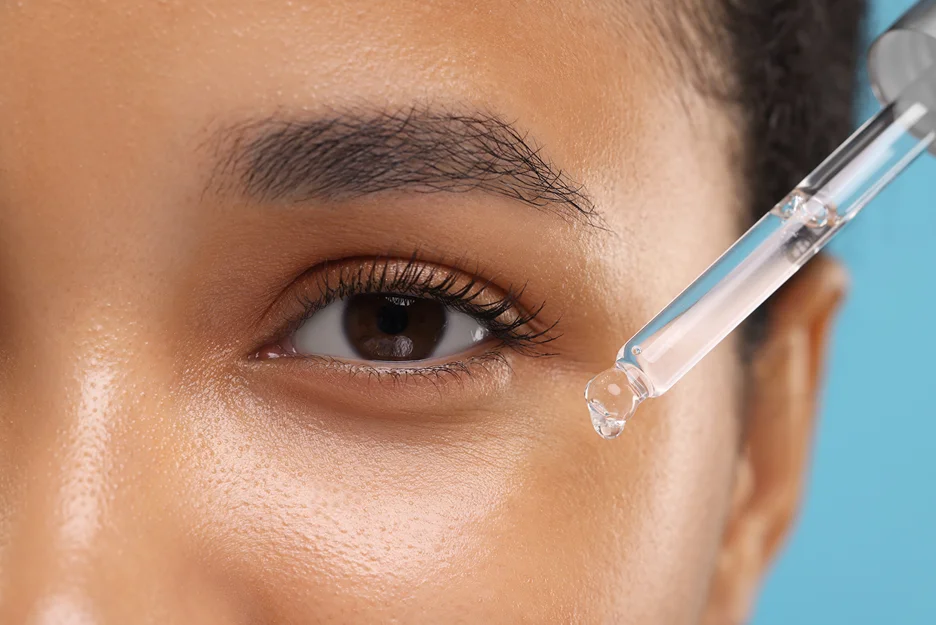
When considering the application of exosome serum for the face, there are several effective methods, each catering to different needs and treatment goals. Here’s a detailed look at how to apply exosome serum for optimal results:
At-Home Topical Application
- Preparation: Cleanse and tone your face to remove impurities. A clean base ensures better absorption.
- Application: Apply a few drops of the serum onto your fingertips. Gently massage into your face and neck with circular motions until absorbed. This process enhances penetration and ensures the serum’s active ingredients work effectively.
- Finalizing: Conclude with your usual moisturizer to lock in the serum’s benefits and maintain hydration.
Professional Application in Clinics
- Microneedling or RF Microneedling: These procedures involve using fine needles to create microchannels in the skin. When combined with exosome serum, the treatment allows deeper penetration of the serum, maximizing its regenerative effects.
- Subdermal Injection: For targeted treatment, exosome serum can be injected directly into specific facial areas. This direct approach ensures that the active ingredients are delivered precisely where needed.
What Should You Look for in a Quality Exosome Face Serum?
With the rising popularity of exosome serums, not all products available may be equally effective. When shopping for an exosome serum, Dr. Hardik Soni recommends keeping the following aspects in mind:
Exosome Source and Ingredients
- Human vs. Plant-Derived Exosomes: Exosomes can originate from human sources like umbilical cords, bone marrow, or fat. However, due to legal restrictions, many products now use plant-derived alternatives like Damascus rose. These plant exosomes closely mimic human ones in size and shape, offering a viable and often more accessible option.
- Beneficial Components: Look for serums enriched with ingredients like liposomes, peptides, nucleic acids, cytokines, and interleukins. These components, often secreted by stem cells, have anti-inflammatory properties, promote wound healing, and stimulate new blood vessel formation. They also enhance the production of collagen, elastin, and hyaluronic acid, crucial for maintaining skin’s firmness and elasticity.
Formulation and Absorption
- Lightweight Formulation: A quality serum should have a lightweight consistency that’s easy to apply and blends seamlessly into your existing skincare routine. It should enhance the skin’s ability to absorb the active exosomes and other beneficial ingredients.
- Absorption Enhancers: Ingredients like hyaluronic acid not only provide hydration but also aid in the deeper penetration of exosomes, ensuring they effectively deliver their regenerative benefits to your skin.
Effectiveness and Clinical Backing
- User Reviews and Clinical Studies: Assess reviews and testimonials from individuals who have used the serum. Clinically tested products with scientific backing offer more assurance of their effectiveness. A money-back guarantee can also indicate the manufacturer’s confidence in the product.
Consistency and Long-Term Use
- Patience with Results: Exosome therapy is not an overnight solution. It’s crucial to understand that significant improvements may take several weeks or even months. Ensure the product’s consistency and formulation align with your daily skincare routine for sustained use and better long-term results.
Safety and Hypoallergenic Properties
- Check for Safe Ingredients: Opt for serums that prioritize safety and are formulated to be hypoallergenic, especially important if you have sensitive skin. Avoid potential irritants and choose products from reputable brands known for their high-quality formulations.
Reasonable Pricing
While pricier than conventional serums, well-formulated exosome serums should offer good value for their advanced cellular technology.
How Do Stem Cell Serums with Exosomes Work?
Stem cells represent an advanced anti-aging ingredient that is often combined with exosomes in cutting-edge serums. As Dr. Hardik Soni explains, stem cells and exosomes have complementary mechanisms of action that give these dual serums an extra regenerative boost.
When applied topically, the growth factors and proteins from plant stem cells stimulate skin cell metabolism, encouraging renewal. Exosomes on the other hand facilitate cell-to-cell communication to activate renewal internally.
Together, the external stem cell stimulation combines with the exosomes’ internal renewal signaling for amplified anti-aging effects. Exosomes also help transmit active constituents from stem cells deeper into the skin for better absorption.
According to Dr. Soni, this synergy between stem cell extracts and exosomes offers visible improvements in wrinkles, firmness, brightness, tone, and texture for more comprehensive rejuvenation.
However, he cautions that the source and processing of stem cells matters. Ethically-sourced stem cells from certified labs that utilize cold processing help preserve stability and maximize synergy with exosomes in the final serum.
Are There Any Risks or Side Effects of Using Exosome Serum?
When used correctly, exosome serums are generally safe topical anti-aging treatments. However, Dr. Hardik Soni advises paying attention to the following considerations:
Allergic Reactions
Some individuals might experience allergic reactions to exosome serum, especially since it’s derived from animal or human sources. Symptoms can range from mild, like a rash or hives, to more severe reactions such as difficulty breathing.
Transmission of Pathogens
Though the risk is considered theoretical and minimized through rigorous screening, there’s still a possibility that exosome serum derived from biological sources could transmit pathogens or prions that cause diseases.
Lack of Efficacy Evidence
While early studies on exosome serum are promising, more comprehensive research is needed to confirm its effectiveness for specific conditions and fully understand its side effects. Currently, exosome serum is used experimentally and isn’t officially approved for treatment purposes.
Interactions with Other Medications
The interactions between exosome serum and other medications are not well-studied. If you’re considering using exosome serum, it’s important to discuss it with your healthcare provider, especially if you’re taking other medications.
Individual Variability
Responses to exosome serum can vary greatly among individuals. While some might experience beneficial effects, others may not see any improvement or could have adverse reactions. More data is needed to understand these individual differences better.
Long-Term Effects Unknown
The long-term safety of using exosome serum has not yet been established. Without comprehensive long-term studies, it’s difficult to rule out any rare or delayed side effects.
Overall, exosome serums demonstrate good topical safety. But monitor yourself for any adverse reactions and discontinue use if they persist. As with any new product, consult your dermatologist if concerned.
What Future Developments Are Expected in Exosome Serums?
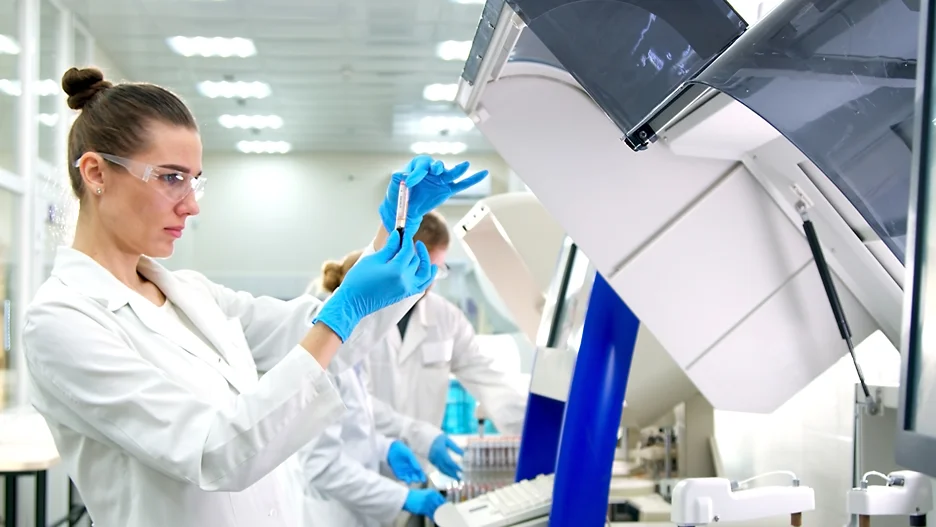
The science of exosomes is still in its early stages. As research continues, Dr. Hardik Soni expects rapid advances in exosome technology and products in the coming years. Some future developments on the horizon include:
More Potent Exosome Concentrations
As extraction and isolation techniques improve, serums with exosome concentrations of 100 million particles/mL or higher could become feasible. The higher the concentration, the more powerful the anti-aging effects.
Better Encapsulation Methods
New encapsulation methods may emerge to better protect exosome integrity and enhance penetration. These could significantly improve delivery for higher serum efficacy.
Wider Variety of Source Cells
Exosomes could be derived from a more diverse pool of plant and human stem cell sources to broaden the range of bioactive compounds available for anti-aging benefits.
Synergy with More Ingredients
Combining exosomes with synergistic ingredients like retinol, growth factors, antioxidants etc. can allow for targeted solutions tailored to specific skin concerns.
Personalized Serums
Genetic research may enable personalized exosome serums with contents tailored to an individual’s unique skin needs for precision anti-aging effects.
Increased Stability
Novel stabilization techniques could help make exosome serums longer-lasting and more resistant to decomposition for improved user convenience.
Advanced Delivery Methods
Cutting-edge delivery methods like hydrogels, iontophoresis, microneedling could be harnessed to propel exosome penetration and absorption in the skin.
Clinical Trials
Ongoing clinical studies will continue to establish the efficacy and safety profile of exosome technology, paving the way for dermatological applications.
Regulatory Approvals
Regulatory bodies may institute specialized frameworks for testing and approving exosome-based cosmeceuticals to ensure consumer safety and spur innovation.
As research continues, Dr. Soni expects the current generation of exosome serums to evolve into even more targeted and efficacious anti-aging solutions. But already, they represent the next frontier in reversing skin aging.
Final Thoughts
Overall, exosome serums provide a revolutionary way to fight aging at the cellular level safely and effectively.
Backed by promising research, this nanotechnology seems poised to transform anti-aging skincare as formulations, delivery methods, and synergistic combinations continue to advance.
With guidance from experts, consumers can incorporate exosome serums into their regimen for the restoration of youthful skin.

